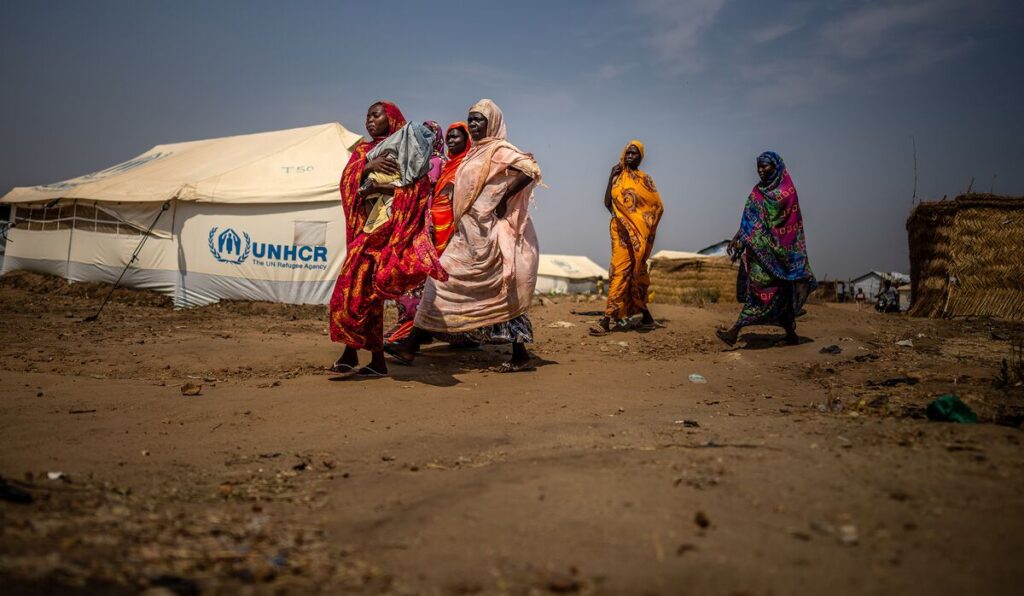- Authorities in South Sudan have imposed a fuel tax on UN fuel tankers, obstructing the delivery of crucial humanitarian aid, jeopardizing assistance to millions of famine-stricken civilians.
- Despite assurances from government officials, including the Minister of Humanitarian Affairs, UN fuel tankers remain detained.
- The impasse is increasingly exacerbating an already dire humanitarian situation in South Sudan.
In a distressing turn of events, UN humanitarian operations in South Sudan targeting famine-stricken populations are at risk of stoppage due to a dispute over a fuel tax levied by South Sudanese authorities on United Nations fuel tankers.
Despite assurances from the Minister of Humanitarian Affairs just a day prior, UN fuel tankers remained detained at depots and the Ugandan border on Wednesday. The Minister had stated that the newly imposed tax on trucks transporting fuel and essential supplies did not extend to UN humanitarian operations, yet the reality proved otherwise, lamented a spokesperson for the mission.
Regrettably, both Minister of Humanitarian Affairs Albino Akok Atak and Information Minister Michael Makuei were unavailable for immediate comment on the matter.
The recent directive from the Trade Ministry introducing the tax cited its aim to mitigate undervaluation and fraud by imposing a $300 charge on each goods truck entering or leaving the country.
South Sudan, marred by a brutal civil war from 2013 to 2018, continues to grapple with the repercussions of conflict, natural calamities, and widespread poverty, culminating in one of the most severe humanitarian crises globally.
The United Nations estimated last month that during the lean season from April to July, approximately 7.1 million out of South Sudan’s 12.4 million population would confront crisis-level hunger, underscoring the urgent need for sustained aid efforts.
Read also: South Africa’s deepening investment ties in South Sudan oil industry
UN humanitarian operations in South Sudan entangles in tax row
“As of now, the trucks are still held up. The mission is continuing to engage intensively at the highest levels to resolve the situation,” remarked Priyanka Chowdhury, acting spokesperson for the UN Mission in South Sudan (UNMISS), in conversation with Reuters.
The ramifications of the impasse are dire: humanitarian airdrops stand suspended, impacting 60,000 vulnerable individuals, while UNMISS is compelled to reassess peacekeeping patrols and diminish support for peace and electoral processes, as articulated in a statement issued on Tuesday.
Expressing vehement opposition, traders and various organizations have decried the tax measure. Diplomatic missions echoed this sentiment, denouncing its imposition on UN and other aid operations as “illicit and unacceptable” in a joint statement released on Sunday.
UNMISS, with its contingent of approximately 20,000 peacekeepers safeguarding around 180,000 internally displaced persons across South Sudan, plays a pivotal role in upholding stability and providing humanitarian assistance in the strife-ridden nation.
Despite concerted efforts by the United Nations and its peacekeeping mission in South Sudan, obstacles continue to hinder the delivery of vital aid to the country’s vulnerable populations.
The ongoing detention of UN fuel tankers underscores the gravity of the situation, with millions of dollars’ worth of humanitarian assistance at risk of being delayed or altogether blocked. This impasse not only exacerbates the suffering of South Sudanese civilians but also undermines the international community’s collective response to the crisis.
Moreover, the imposition of a fuel tax by South Sudanese authorities reflects broader issues of governance and resource management in the country. While the government aims to address undervaluation and fraud through such measures, the unintended consequences include hindering humanitarian operations and exacerbating the plight of those already grappling with hunger, displacement, and insecurity.
Repercussions of the tax dispute
The humanitarian community, including UN agencies, non-governmental organizations, and diplomatic missions, has raised alarm over the potential repercussions of the tax dispute. Beyond the immediate impact on aid delivery, there are concerns about the broader implications for humanitarian access and the ability to reach populations in need across South Sudan.
In addition to the logistical challenges posed by the detention of fuel tankers, the suspension of humanitarian airdrops and the reduction in peacekeeping activities further compound the difficulties faced by aid organizations on the ground. With the lean season exacerbating food insecurity and malnutrition, every delay in aid delivery has severe consequences for vulnerable communities.
Efforts to resolve the tax dispute and ensure unhindered humanitarian access must be prioritized by all parties involved. This includes constructive engagement between the South Sudanese government and the United Nations, as well as support from regional and international partners to address the underlying issues contributing to the crisis.
Ultimately, the welfare of millions of South Sudanese civilians hangs in the balance, dependent on swift and effective action to overcome bureaucratic hurdles and deliver life-saving assistance. In the face of such adversity, the commitment of the international community to stand in solidarity with the people of South Sudan remains paramount, ensuring that aid reaches those who need it most without delay or obstruction.
Read also: Kenya in fresh bid to regain lost petroleum exports market in EAC
